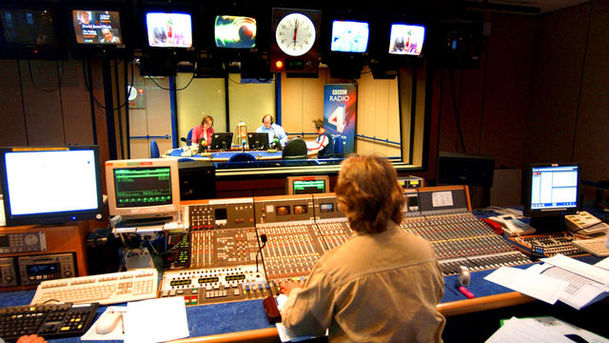Today - 16/11/2009

Presented by Evan Davis and Sarah Montague. Barack Obama is in China for his first presidential visit and has said that the two countries are not predestined to be adversaries. China correspondent Damian Grammaticas reports on the visit. The prison service is failing to stop the most dangerous Al Qaeda leaders from radicalising other inmates or smuggling out propaganda on the internet, according to think tank the Quilliam Foundation. Report author James Brandon explains the allegations. People in Greater Manchester can apply for the government's identity card as part of a voluntary scheme. Home office minister Meg Hillier explains why it is being introduced. Australian prime minister Kevin Rudd has apologised for the hardship and institutionalised abuse suffered by thousands of British children who were sent to Australia up until the 1970s with the promise of a new life. Sydney correspondent Nick Bryant reports on the apology and child migrant John Hennessy describes the terrible treatment he faced when he arrived in Australia. A man has been charged with 22 rapes, assaults and burglaries by police investigating attacks on elderly people in London over 17 years. Home affairs correspondent Danny Shaw reports on the arrest. The singer Natalie Merchant is in the UK performing music she has written around poems about childhood. Reporter Nicola Stanbridge spoke to the singer about her hope that the music could be used to tackle difficult issues including war and coping with bereavement Thought for the Day with Canon Dr Alan Billings. The new chairman of the Press Complaints Commission has praised the exposure of MPs' expenses claims by The Daily Telegraph. Baroness Buscombe discusses her belief in the importance of the independence of the press. The Queen's Speech will be listened to with particular care by bankers, who are to learn what the government intends to do to limit their pay. Reforms announced in the speech will give regulators the power to stop bankers from pocketing big bonuses that could destabilise the financial system. Former chairman of RBS Sir George Mathewson and chairman of the Treasury Select Committee John McFall discuss the proposals. Authorities in Mexico have said that 15 people, including a child, three women and a university professor, have been killed in a single day in the violent border city of Ciudad Juarez. It is further evidence that the Mexican government's attempts to bring an end to the drug-related violence are simply not working. Correspondent Matthew Price was in Juarez with the Mexican police as the latest murders took place. If a writer deliberately sets out to deceive his or her readers and they succeed, should they be complimented or criticised? Melissa Katsoulis, author of Telling Tales, and author William Boyd, who ten years ago fooled the art world by inventing the artist Nat Tate, discuss the literary hoax. A report by the Children's Rights Alliance for England has found that Britain is the most punitive nation in Europe and that its child protection services are 'not fit for purpose'. The report's author, Dr Mike Lindsay, and Jill Kirby, director for the Centre for Policy Studies, discuss the findings. Britain is an international haven for people to attack scientists, according to the former director of public prosecutions, Sir Ken Macdonald. He discusses how he believes the libel laws of England and Wales need to change. In 1960 there was a huge controversy when British interrogators were accused of using brainwashing techniques on prisoners during World War II. Prime ,inister Harold Macmillan emphatically denied that such methods, which involved subjecting captives to hypnosis and drugs, were ever used. But, as Mike Thomson reports, new evidence suggests that Macmillan misled the country. Fraudsters are duping internet users into laundering stolen money, according to a report by Get Safe Online. Managing director of Get Safe Online, Tony Neate, explains how 'money mules' are being recruited via job websites. The Australian government has now apologised to child migrants treated appallingly there up to the 1970s. Historians Andrew Roberts and David Cesarani discuss whether it is difficult for governments to apologise for the activities of predecessors.